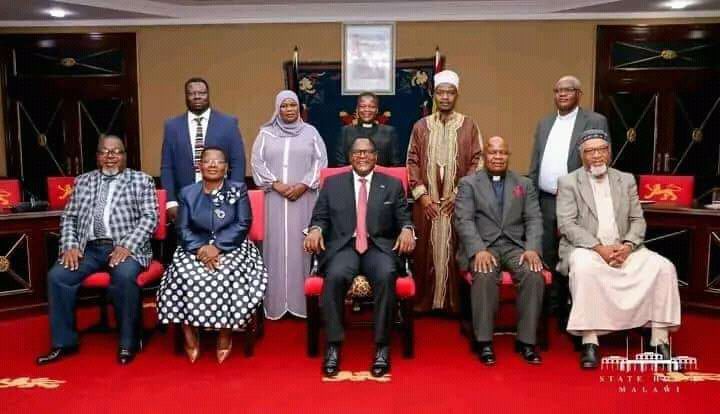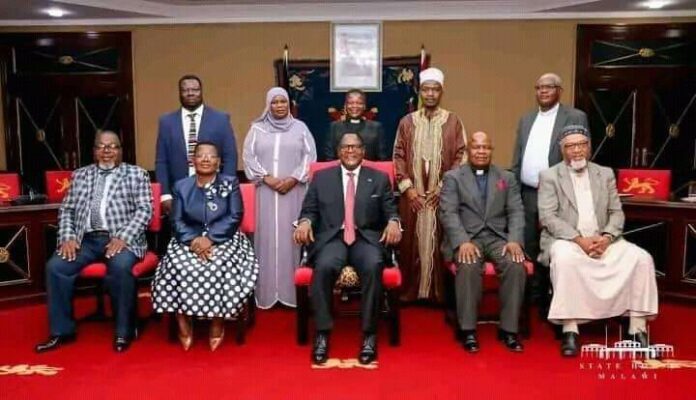By Linda Kwanjana
In a recent meeting with the Public Affairs Committee (PAC), President Lazarus Chakwera’s administration was subjected to what may be called PAC scrutiny, particularly concerning its approach to corruption, economic management, and infrastructure development. However, while PAC highlighted significant areas of concern, it also acknowledged the positive strides made under Chakwera’s leadership.
Corruption and Governance Concerns
Corruption remains a pervasive issue in Malawi, with PAC pointing to perceived inaction regarding allegations within the government. Specific programs, such as the Agricultural Input Program (AIP) and fuel procurement, were cited as particularly problematic. While these claims reflect a broader discontent among the populace, they may overlook the substantial measures being taken to combat corruption. The administration has sought to empower the Anti-Corruption Bureau (ACB) by increasing funding and establishing its operational independence, allowing the bureau to investigate without presidential interference. Instances of high-level officials facing corruption charges, previously unprecedented in the country, demonstrate the government’s commitment to tackling this deep-rooted issue.

Economic Management and Social Welfare Initiatives
PAC also raised alarm about the deteriorating standard of living and rising costs of essential goods, expressing skepticism about the effectiveness of government measures to alleviate economic hardships as outlined in the MCP manifesto. Despite these critiques, significant initiatives have been undertaken to support low-income earners. The government raised the tax-exempt income threshold for employees, effectively alleviating the financial strain on many Malawians. In addition, salary adjustments for civil servants during periods of currency devaluation reflect an understanding of the economic challenges facing the populace.
Broader economic strategies have been highlighted by the government, emphasizing mineral resource development, particularly in the mining sector. Recently discovered reserves of rutile and graphite are anticipated to generate substantial revenue, positioning Malawi as a key player in the global mining industry. These initiatives aim not only to boost the economy but also to create sustainable employment opportunities, fostering an environment conducive to growth.
Infrastructure Development Initiatives
According to PAC’s remarks, one of the most notable achievements of the Chakwera administration has been the significant progress in infrastructure development. Major road construction projects, including the dual carriageways and the substantial M1 Road reconstruction, have been undertaken across the country, enhancing connectivity and supporting trade. These developments not only serve to transform Malawi’s transport landscape but are also seen as crucial investments in the country’s economic future.
Strengthening International Relations
The improvement in Malawi’s international relations under President Chakwera has garnered attention from PAC, highlighting the potential for foreign investment and support. Strengthening connections with other nations could provide essential resources and expertise, critical for navigating the nation’s economic challenges.
Embracing Adaptive Leadership
PAC’s assessment recognized President Chakwera’s composure in the face of public scrutiny, reinforcing his willingness to engage in dialogue with civil society organizations. This openness to dialogue marks a significant shift from previous administrations, showcasing a commitment to constructive engagement and collaboration in addressing the country’s pressing challenges.
Conclusion
While the Public Affairs Committee’s recent evaluation of President Chakwera’s administration poses critical questions about governance and economic management, it also acknowledges the numerous initiatives aimed at fostering progress. The administration’s ongoing commitment to infrastructure development, anti-corruption measures, and enhancing international relations signals a willingness to confront the multifaceted challenges that Malawi faces. As the country moves forward, balancing constructive criticism with recognition of achievements will be vital in fostering a collaborative environment for continued development.



